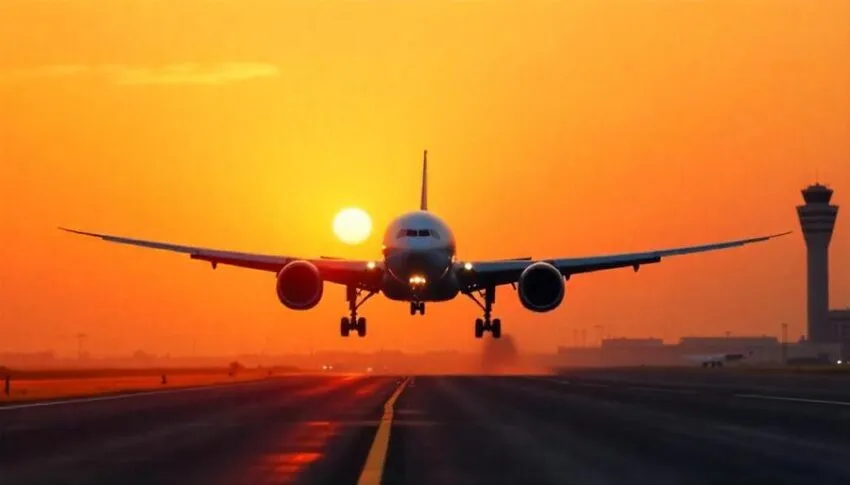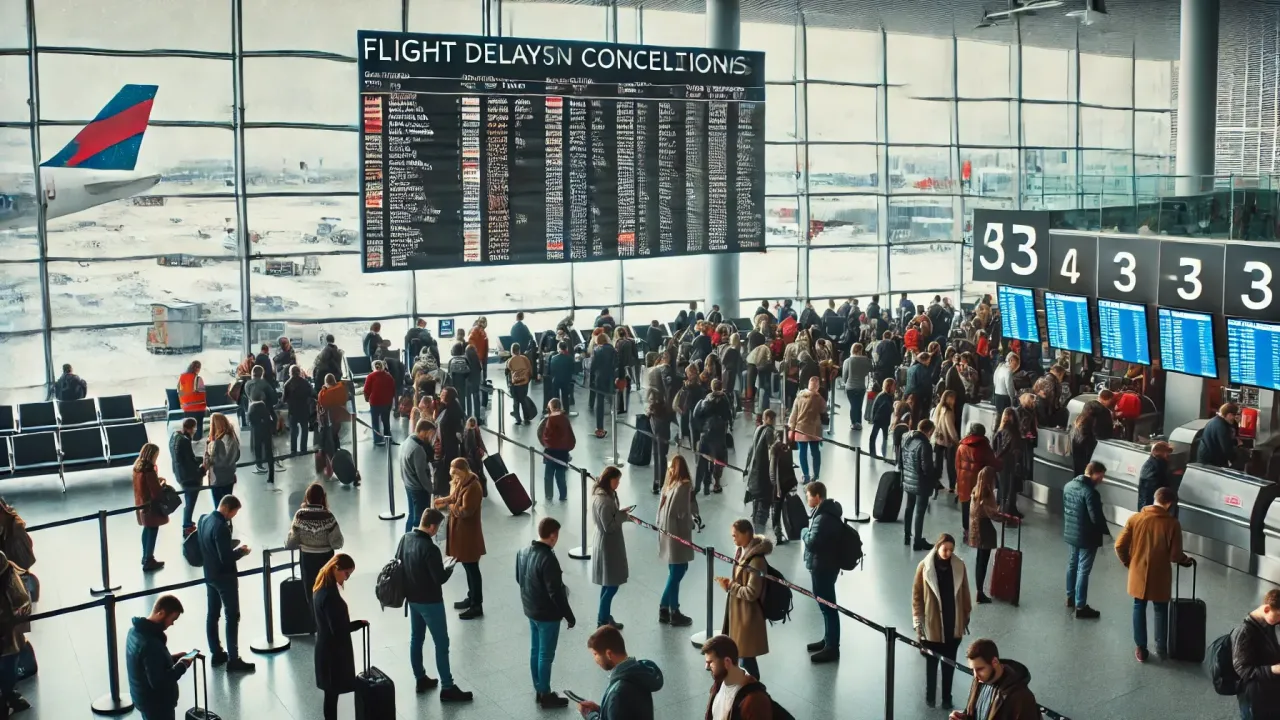A wave of coordinated airport strikes swept across major European travel hubs in June 2025, throwing air travel into chaos and affecting millions of passengers during the peak summer season. Workers at airports in France, Germany, Italy, and Spain have walked off the job in protest over pay, working conditions, and post-pandemic labor reforms, leading to massive flight cancellations, delays, and logistical nightmares for airlines and travelers alike.
The strikes, which began as isolated national labor actions, have now spread across borders and escalated into one of the largest air travel disruptions in recent European history.
What Sparked the Airport Strikes?
The root causes of the strikes vary slightly by country but are united by several common themes:
- Stagnant wages despite inflation and rising cost of living.
- Understaffing and burnout from years of pandemic-era strain.
- Disagreements over labor reforms, such as automation and schedule flexibility.
- Cuts to pension and benefit packages, particularly in state-run airports.
In France, air traffic controllers and baggage handlers at Charles de Gaulle and Orly Airports have been demanding a 12% wage increase and guaranteed rest breaks. In Germany, security personnel and ground staff at Frankfurt and Munich airports have protested for better overtime pay and against the privatization of airport services. Italian unions have pushed back on government outsourcing policies, while Spanish workers are opposing job cuts at Madrid-Barajas and Barcelona El Prat airports.

Scope and Impact of the Strikes
According to the European Aviation Agency, over 6,000 flights have been delayed or canceled in just the first week of the strikes. The effects have rippled far beyond European borders, disrupting transatlantic and international travel from the U.S., Asia, and the Middle East.
Countries Most Affected:
- France – Over 1,200 flights canceled; long lines at Paris airports.
- Germany – Flight disruptions at key hubs like Frankfurt, Munich, and Berlin.
- Italy – Delays reported in Rome, Milan, and Naples.
- Spain – Strikes affecting domestic and EU-bound flights.
Airline Response:
Major airlines, including Lufthansa, Air France, Ryanair, British Airways, and easyJet, have issued travel advisories, rebooked passengers, and are scrambling to reassign crews. Many carriers have criticized the lack of government coordination and are urging swift negotiations with labor unions to restore normalcy.
Traveler Experience: Long Waits and Frustration
Passengers across Europe have shared images and videos of chaotic airport scenes—massive queues, lost baggage, and overcrowded terminals. Many travelers have reported being stuck for hours, missing connecting flights, or receiving little to no communication from airline staff.
Social media is flooded with complaints about poor customer service, lack of information, and canceled vacations. For some travelers, particularly families and elderly passengers, the experience has been physically and emotionally draining.
Economic Cost and Industry Reaction
The financial toll is mounting. Analysts estimate that the strikes could cost the European aviation industry over €1.5 billion in lost revenue, operational costs, and reputational damage. Tourism-heavy countries such as Spain, Italy, and Greece could also suffer significant losses in tourist spending during one of the busiest travel months of the year.
The International Air Transport Association (IATA) has called for mediation and a balanced resolution that addresses labor concerns without compromising Europe’s fragile post-COVID air recovery.
“We understand workers’ frustrations, but coordinated action is needed to protect both employees and passengers. This cannot continue unchecked,” said IATA’s European Director of Operations.
Government Involvement and Response
European governments have responded with mixed approaches. Some, like France and Germany, have called emergency meetings with unions, while others have issued minimum service orders requiring a small portion of essential staff to remain on duty.
The European Commission has expressed concern over the continent-wide disruption and is urging national governments to work with labor groups to find a solution before the summer peak intensifies further.
However, union leaders argue that years of underinvestment in airport staff, poor working conditions, and broken promises have left them with no choice but to strike.
Unions Speak Out
Leaders from Europe’s largest aviation unions—Ver.di (Germany), CGT (France), CISL (Italy), and UGT (Spain)—have stated that this movement is not just about salaries, but about restoring dignity and respect in a sector they feel has prioritized profits over people.
“Airports run on people, not machines. We kept airports open during the pandemic. Now we want fair treatment,” said a spokesperson from Ver.di in Berlin.
Many unions have warned that if demands are not met soon, strikes may escalate into July and August, affecting even more travelers and airlines.

Impact on Airlines and Future Flights
The longer the strikes continue, the more difficult it will be for airlines to catch up. Even once the strikes are over, schedule backlogs, staffing shortages, and lost bags may continue for weeks. Some low-cost carriers are already reducing July schedules, anticipating further disruption.
Travel industry insiders are concerned that passengers may lose confidence in the reliability of European air travel, leading to long-term shifts in vacation planning and business travel habits.
Tips for Travelers Caught in the Disruption
If you’re planning to travel through Europe during the strike period, here are a few steps you can take:
- Monitor Airline Alerts: Check your airline’s website and app frequently for updates.
- Arrive Early: Get to the airport at least 3-4 hours in advance to navigate delays.
- Avoid Connecting Flights in Affected Airports: If possible, fly direct.
- Travel Light: Avoid checking baggage to minimize the risk of lost luggage.
- Stay Flexible: Be prepared to reschedule or reroute if necessary.
- Purchase Travel Insurance: Make sure it covers strike-related delays and cancellations.
- Use Rail Alternatives: For short distances, high-speed trains may be a better option.
Will This Crisis Lead to Lasting Change?
Long-standing problems in the European aviation sector, such as underpaid ground staff, overworked security personnel, and antiquated labor laws, have been brought to light by the strikes. Experts believe this could be a turning point for how air travel is managed on the continent.
Governments may be forced to rethink airport privatization policies, invest more in aviation infrastructure, and establish clearer dialogue between operators and workers to avoid future collapses in service.
Related Blog: EU Drops Visa Rules for 7 Countries Starting July 2025
Conclusion: A Wake-Up Call for European Aviation
In addition to being a labor conflict, the 2025 European airport strikes serve as a sobering reminder of how precarious the world’s travel infrastructure is in the wake of the pandemic. As flights are grounded and terminals are packed with frustrated passengers, both airlines and governments face a difficult challenge: resolve the crisis quickly or risk long-term damage to public trust and economic stability.
For now, the skies over Europe remain uncertain, and millions of travelers are left watching, waiting, and hoping for resolution.
Frequently Asked Questions (FAQs)
Q1: What caused the Europe-wide airport strikes in 2025?
A: The strikes are mainly due to demands for better wages, improved working conditions, and resistance to automation and job cuts. Workers across several countries are protesting after years of understaffing, inflation, and a lack of government support.
Q2: Which countries are most affected by the airport strikes?
A: France, Germany, Italy, and Spain have seen the most significant disruptions, especially at major international airports in Paris, Frankfurt, Rome, and Madrid.
Q3: How many flights have been affected so far?
A: Over 6,000 flights have been delayed or canceled within the first week of the strikes, and more disruptions are expected if the labor disputes continue.
Q4: Are all airport staff involved in the strike?
A: No, but key personnel such as baggage handlers, air traffic controllers, security workers, and ground staff are participating in the walkouts, which severely impact airport operations.




